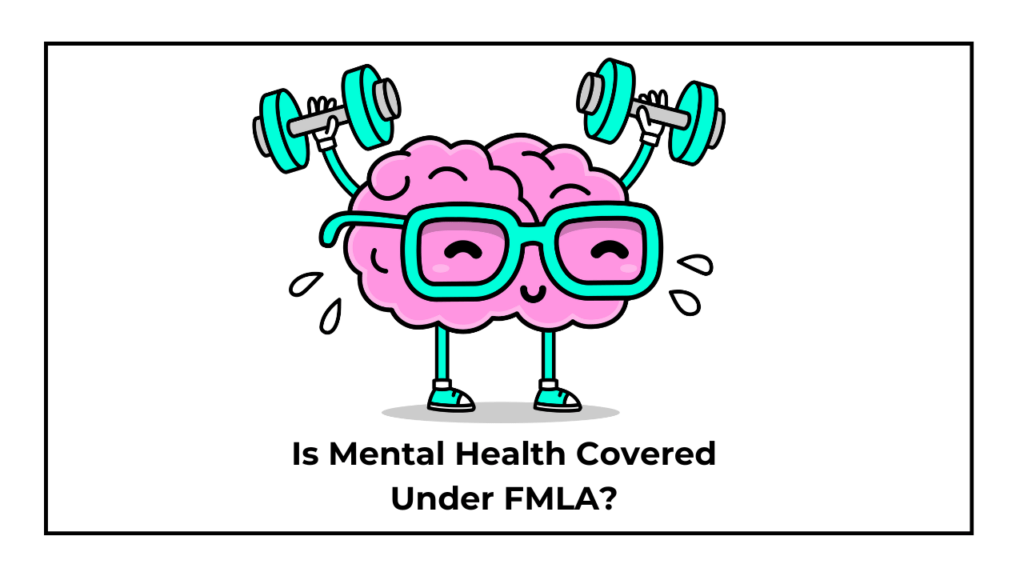When considering emotional health vs mental health, it’s important to understand the nuances between the two. Emotional health explores how well you can manage your feelings and navigate relationships, while mental health encompasses a broader array of factors affecting your well-being.
The distinction between the two might only sometimes be clear-cut, but grasping these differences is essential for your overall wellness. By recognizing the unique roles emotional and mental health play in your life, you can start on a journey towards a more balanced and fulfilling existence.
Definition of Emotional Health
Emotional health, often referred to as emotional well-being, encompasses the ability to understand and manage one’s emotions effectively in various situations. It involves being aware of your feelings, expressing them appropriately, and coping with stress in a healthy manner.
Research shows that individuals with good emotional health tend to have stronger relationships, higher self-esteem, and improved overall well-being. When you prioritize your emotional health, you enhance your resilience to life’s challenges, leading to better decision-making and problem-solving skills.
Definition of Mental Health
Defined as the state of one’s psychological well-being, mental health encompasses the cognitive, emotional, and social aspects of a person’s life. Understanding the definition of mental health is essential for maintaining overall well-being.
Here are some key points to keep in mind:
- Cognitive Function: Mental health involves the ability to think clearly, make decisions, and solve problems effectively.
- Emotional Well-being: It includes managing emotions, coping with stress, and developing resilience in the face of challenges.
- Social Connections: Mental health is also about fostering positive relationships, communication skills, and a sense of belonging in social settings.
Components of Emotional Health
Understanding the different components of emotional health provides insight into how you navigate your feelings and responses in various situations. Emotional health encompasses self-awareness, which involves recognizing and understanding your emotions. It also includes self-regulation, the ability to manage and control your emotions effectively.
Social awareness is another pivotal component, focusing on understanding and empathizing with others’ emotions. Building and maintaining healthy relationships play a significant role in emotional health, as social connections can positively impact your well-being.
Additionally, emotional health involves responsible decision-making, where you consider your emotions and values when making choices. By developing these components of emotional health, you can enhance your overall emotional well-being and effectively cope with life’s challenges.
Components of Mental Health
Exploring the components of mental health offers valuable insights into the factors that contribute to your cognitive and emotional well-being.
- Biological Factors: Genetics, brain chemistry, and neurological functions play a vital role in mental health. Imbalances in neurotransmitters or genetic predispositions can impact mood and behaviour.
- Psychological Factors: Cognitive processes, coping mechanisms, and personality traits influence mental health. Understanding thought patterns, stress management skills, and self-perception is crucial.
- Social Factors: Relationships, support systems, and societal influences significantly impact mental health. Social connections, community involvement, and cultural background all contribute to one’s mental well-being.
Exploring these components can help you better understand and nurture your mental health for overall well-being.
Importance of Emotional Health
To fully optimize your mental health, it is essential to recognize and prioritize the significance of emotional health in fostering overall well-being. Emotional health plays a pivotal role in how you think, feel, and act in your daily life. It influences your relationships, decision-making, and stress management.
By nurturing your emotional health, you enhance your ability to cope with challenges, build resilience, and enjoy a more fulfilling life. Here is a breakdown of the importance of emotional health:
| Importance of Emotional Health | Description |
|---|---|
| Enhances resilience | Strengthens your ability to bounce back from adversity. |
| Promotes healthy relationships | Facilitates better communication and connection with others. |
| Improves overall well-being | Contributes to a balanced and fulfilling life. |
Importance of Mental Health
It would be best if you recognized the importance of mental health as it directly impacts your overall well-being. Mental health benefits include improved cognitive function, better stress management, and enhanced resilience in facing life’s challenges. Prioritizing your mental health contributes to psychological stability, allowing you to lead a fulfilling and balanced life.
Mental Health Benefits
Why is prioritizing mental health important for overall well-being?
Mental health plays an essential role in your overall wellness and quality of life.
Here are three key benefits of prioritizing your mental health:
- Enhanced Resilience: Taking care of your mental health equips you with the tools to cope with stress, adversity, and life challenges effectively.
- Improved Relationships: When you prioritize your mental health, you’re better equipped to communicate, empathize, and build healthier relationships with others.
- Boosted Productivity: A healthy mind fosters increased focus, creativity, and problem-solving abilities, leading to higher productivity levels in both personal and professional spheres.
Well-being Impact
Prioritizing mental health enhances resilience, improves relationships, and boosts productivity. It also impacts overall well-being by fostering a sense of balance and emotional stability in individuals.
Research shows that individuals with good mental health are better equipped to cope with stress, adapt to changes, and maintain a positive outlook on life. When mental health is neglected, it can lead to a decline in overall well-being, affecting various aspects of life, such as physical health, social interactions, and work performance.
By prioritizing mental health, such as seeking therapy, practicing self-care, and developing healthy coping mechanisms, individuals can greatly improve their well-being and lead more fulfilling lives.
Psychological Stability
Enhancing psychological stability through prioritizing mental health is essential for maintaining overall well-being and resilience in individuals.
Here are three key reasons why psychological stability is vital for mental health:
- Cognitive Function:
A stable mind enhances cognitive abilities, such as decision-making and problem-solving skills, leading to better performance in daily tasks. - Emotional Regulation:
Psychological stability helps manage emotions effectively, reducing stress and anxiety levels and improving relationships with others. - Adaptability:
Individuals with psychological stability can adapt more easily to changes and challenges, fostering a sense of control and empowerment in various aspects of life.
Prioritizing mental health to achieve psychological stability is fundamental for a balanced and fulfilling life.
Impact on Overall Well-being
Understanding the impact of emotional health and mental health on overall well-being is vital for maintaining a balanced and healthy life. Emotional health relates to how well you manage your feelings and cope with life’s challenges. It influences your relationships and daily interactions.On the other hand, mental health involves cognitive functions, affecting your thoughts, behaviors, and decision-making abilities. Both emotional and mental health play pivotal roles in determining your overall well-being.
Research shows that individuals with good emotional and mental health tend to experience higher levels of life satisfaction, improved physical health, and better resilience to stress. Neglecting either aspect can lead to negative consequences, such as increased risk of developing mental health disorders or experiencing difficulties in maintaining healthy relationships.
Strategies for Emotional Wellness
To cultivate emotional wellness, individuals can implement various evidence-based strategies that promote self-awareness and emotional regulation.
- Mindfulness Practices: Engaging in mindfulness meditation or deep breathing exercises can help you become more aware of your emotions and how they manifest in your body.
- Emotion Regulation Techniques: Learning to identify and manage your emotions effectively through techniques like journaling, talking to a trusted individual, or engaging in physical activity can improve emotional well-being.
- Self-Compassion Strategies: Being kind to yourself, practising self-care, and challenging negative self-talk can enhance your emotional resilience and overall wellness.
These strategies can help you navigate challenging emotions and promote a healthier relationship with yourself.
Strategies for Mental Wellness
To enhance your mental wellness, focusing on coping with stress and building resilience are vital strategies.
Coping with stress involves developing healthy ways to manage and reduce stressors in your life.
Building resilience helps you bounce back from challenges and adapt positively to adversity, promoting overall mental well-being.
Coping With Stress
Managing stress effectively is essential for maintaining mental wellness and overall emotional health. To cope with stress, consider the following strategies:
- Mindfulness Meditation: Engaging in mindfulness practices can help you focus on the present moment, reducing anxiety and improving mental clarity.
- Physical Exercise: Regular exercise releases endorphins, the body’s natural stress relievers, promoting a sense of well-being and reducing tension.
- Healthy Lifestyle Choices: Eating a balanced diet, getting enough sleep, and avoiding excessive alcohol and caffeine intake can all contribute to better stress management and mental resilience.
Building Resilience
Engaging in activities that foster resilience plays an essential role in enhancing mental wellness and fortifying your ability to navigate life’s challenges effectively. Building resilience involves developing coping mechanisms and mindset strategies that empower you to bounce back from adversity.
Research suggests that resilience can be cultivated through various practices such as mindfulness meditation, physical exercise, seeking social support, setting realistic goals, and maintaining a positive outlook.
The table below outlines these resilience-building activities and their benefits:
| Resilience-Building Activity | Description | Benefits |
|---|---|---|
| Mindfulness Meditation | Focusing on the present moment | Reduces stress, enhances self-awareness |
| Physical Exercise | Engaging in regular physical activity | Boosts mood, improves overall well-being |
| Seeking Social Support | Connecting with others for support | Increases sense of belonging and security |
| Setting Realistic Goals | Establishing achievable objectives | Enhances motivation and sense of accomplishment |
| Maintaining a Positive Outlook | Adopting an optimistic mindset | Improves resilience in the face of challenges |
Conclusion
Understanding the distinction between emotional health and mental health is essential for promoting overall well-being. Emotional health focuses on managing emotions and relationships, while mental health encompasses broader factors affecting cognitive processes and resilience. Both are vital for a balanced life.
By prioritizing strategies for emotional and mental wellness, you can enhance your self-awareness, regulate your emotions, and make responsible decisions to lead a fulfilling and healthy life.

